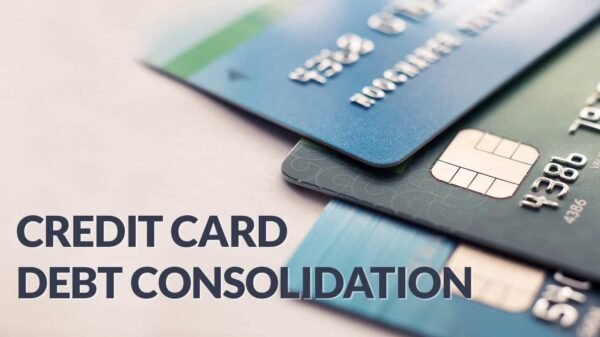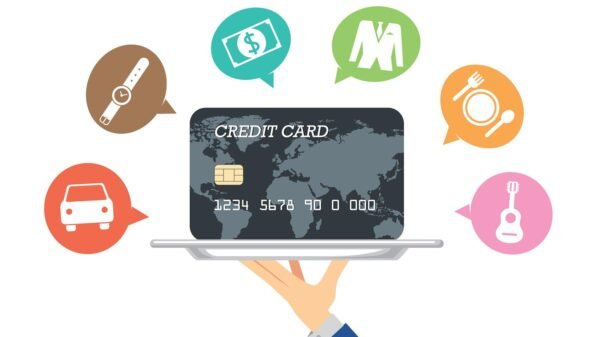Business credit card best practices
Looking for a robust tool to manage your business’s finances and enhance purchasing power? A company credit card will do. Choosing a card and following best practices might be daunting with so many alternatives. In this post, we’ll cover the best ways to use your business credit card’s points and advantages to improve your finances.
Key takeaways:
- Choose the right card with factors like rewards, fees, and credit limits in mind.
- Manage expenses, pay off balances on time, and avoid accumulating debt.
- Maximize rewards programs to earn cashback, points, and perks.
- Monitor credit card activity to prevent fraud and track spending.
- Keep credit card information secure.
You continually balance a million things at once as a business owner. A successful firm must successfully manage its finances, but doing so may be difficult and time-consuming. A company credit card may be useful in this situation. It’s a tool that might ease your life but can also be challenging to use. It’s simple to become lost in the sea of information when there are so many alternatives and incentive schemes available.
We’ll go through everything in this post, from picking the best card to optimizing rewards programs and keeping an eye on credit card activity.
Thus, whether you’re a seasoned business owner or are just getting started, this article will give you the direction you need to make wise choices regarding your business credit card. Let’s explore the world of business credit cards together by jumping in!
Importance of using a business credit card for financial management
It’s easy to become bogged down in the nitty-gritty of running a business. Nonetheless, it’s crucial to step back and consider the big picture. Financial management is an essential function for any business manager to do. If you want your business to succeed and last, you need to learn how to properly handle its finances.
That’s why having a credit card for your company is so helpful. Using a credit card for your company’s purchases is a convenient way to keep tabs on your spending, handle your money, and rack up rewards. Using a company credit card allows you to keep your business and personal spending separate, which simplifies accounting.
The benefits of utilizing a credit card for your company’s finances go beyond the mere ease of use. It’s also a means of improving your company’s credit rating. When applying for a company loan or line of credit, a good credit score is just as crucial as a personal one. Your company’s ability to get finance in the future can be boosted by responsible use of a business credit card.
In addition, utilizing a credit card for company expenses will help you keep track of your money. Credit card use for company spending allows you to delay paying such bills until your credit card statement comes due. This will help you to better manage your cash flow by giving you more time to collect payments from your consumers or clients.
Overall, managing your company’s finances using a credit card might help you sleep better at night. It may help you manage cash flow, keep track of your costs, build your business’ credit, and more. However, it is important to use it responsibly like any other financial tool. Best practices for utilizing a company credit card will be discussed below. Topics covered will include selecting the correct card, controlling costs, paying off the amount, making the most of rewards programs, and keeping tabs on credit card use.
Choosing the Right Business Credit Card
Choosing the right business credit card is a crucial part of financial management for any business. With so many options available, it can be overwhelming to decide which one is the best fit for your business needs. But don’t fret, we’re here to help you navigate the maze of information and select the right card for your business.
First and foremost, it’s important to do your research. Look into different business credit card options and compare them based on their benefits, rewards programs, fees, and interest rates. Consider your business’s spending habits and determine which card will provide the most value for your business.

Photo;
Blake Wisz
Another important factor to consider is the rewards program. Many business credit cards offer rewards programs, such as cash back, points, or miles. But not all rewards programs are created equal. Some may be better suited for businesses that spend a lot on travel, while others may be better for businesses that spend more on office supplies or gas. Make sure to choose a rewards program that aligns with your business’s spending habits and offers the most value.
Fees and interest rates are also important to consider when choosing a business credit card. Look into annual fees, foreign transaction fees, and late payment fees. Make sure to choose a card with fees that are reasonable and won’t eat into your profits. Additionally, pay attention to the interest rate. While it’s always best to pay off your balance in full each month, sometimes that’s not possible. Choose a card with a lower interest rate to minimize interest charges.
Finally, consider any additional benefits or perks that come with the card. Some cards offer travel insurance, extended warranty protection, or even free access to airport lounges. These benefits can add significant value to your business and may be worth considering when choosing a business credit card.
In a nutshell, selecting the proper company credit card is crucial for managing finances. Do your homework, compare rewards and benefit programs, keep an eye on costs and interest rates, and take into account any additional perks or advantages. You may optimize the value of the card and utilize it as a tool for financial success by choosing the appropriate card for your business.
Managing Credit Card Expenses
Managing credit card expenses is a crucial part of using a business credit card. It’s easy to get carried away with spending and rack up a large balance on your credit card. However, this can lead to significant interest charges and negatively impact your business’s financial health. That’s why it’s important to implement strategies for managing credit card expenses.
First and foremost, it’s important to establish a budget for credit card expenses. Determine how much you can afford to spend on your credit card each month and stick to that budget. This will help you avoid overspending and keep your credit card balance manageable.
Another important strategy is to use your credit card for necessary business expenses only. Avoid using it for personal expenses or non-business-related purchases. By keeping your credit card expenses focused on your business needs, you can avoid unnecessary charges and keep your finances in check.
It’s also important to keep track of your credit card expenses. Make sure to keep receipts and record your purchases in a spreadsheet or accounting software. This will help you stay on top of your expenses and avoid surprises when it comes time to pay off your balance.
Paying off your credit card balance in full each month is the best way to manage credit card expenses. However, sometimes that’s not possible. In that case, it’s important to make at least the minimum payment on time each month to avoid late fees and negative impacts on your credit score.
Finally, consider using credit card alerts to help you manage your expenses. Many credit card issuers offer alerts for things like large purchases or when your balance reaches a certain threshold. These alerts can help you stay on top of your spending and avoid overspending.
Managing credit card expenses is a crucial part of using a business credit card. Establish a budget, use your card for necessary business expenses only, keep track of your expenses, pay off your balance in full each month, and consider using credit card alerts. By implementing these strategies, you can effectively manage your credit card expenses and maintain your business’s financial health.
Paying off the Balance
Paying off the balance on your business credit card is a critical component of financial management. Failing to pay off your balance in full each month can result in significant interest charges and negatively impact your business’s financial health. That’s why it’s essential to implement strategies for paying off your balance in a timely and efficient manner.
First and foremost, it’s important to make on-time payments. Late payments can result in hefty fees and negatively impact your credit score. Set up automatic payments or reminders to ensure that you never miss a payment deadline.
Another strategy is to pay more than the minimum payment each month. While making the minimum payment will keep your account in good standing, it won’t necessarily help you pay off your balance in a timely manner. By paying more than the minimum, you can reduce your balance faster and minimize interest charges.
Consider prioritizing payments towards higher interest rate balances first. This will help you reduce the amount of interest you pay over time and ultimately pay off your balance faster.
It’s also important to avoid adding new charges to your credit card while you’re trying to pay off your balance. Focus on paying off your existing balance before making new purchases. This will help you avoid further debt and minimize interest charges.
Finally, consider transferring your balance to a card with a lower interest rate. Many credit card issuers offer promotional balance transfer rates, which can save you money in interest charges. However, be sure to read the fine print and understand any fees associated with the balance transfer before making a decision.
Paying off the balance on your business credit card is a critical part of financial management. Make on-time payments, pay more than the minimum payment, prioritize payments towards higher interest rate balances, avoid adding new charges, and consider transferring your balance to a card with a lower interest rate. By implementing these strategies, you can effectively manage your credit card balance and maintain your business’s financial health.
Maximizing Rewards Programs
When it comes to using a business credit card, one of the biggest advantages is the potential to earn rewards. These rewards can include cash back, points, miles, and other perks that can help your business save money and grow. But in order to maximize the benefits of these rewards programs, you need to have a clear strategy in place.
First and foremost, choose a credit card with rewards that align with your business’s needs. If you travel frequently for work, a credit card with airline miles or hotel points might be a good fit. If you spend a lot on advertising or office supplies, a card with cash back or points for these purchases might be more valuable.
Once you’ve chosen a card, be sure to understand the details of the rewards program. Some cards offer bonus points or cash back for certain spending categories, while others have limits on the amount of rewards you can earn in a year. Be sure to read the fine print and understand any limitations or exclusions before making any purchases.
Another key strategy for maximizing rewards is to use your card for all eligible purchases. This might include business expenses like office supplies, advertising, travel, and entertainment. By using your card for all eligible purchases, you can earn rewards faster and accumulate more points or cash back over time.
It’s also important to keep track of your rewards and redeem them in a timely manner. Some rewards programs have expiration dates or redemption limitations, so be sure to stay on top of these details. Additionally, consider using rewards for business expenses like travel or office supplies, which can help you save money and improve your bottom line.
Finally, consider taking advantage of any bonus or promotional offers from your credit card issuer. This might include sign-up bonuses, spending bonuses, or discounts with partner merchants. By taking advantage of these offers, you can earn even more rewards and maximize the benefits of your credit card.
Maximizing rewards programs on your business credit card requires a strategic approach. Choose a card with rewards that align with your business’s needs, understand the details of the rewards program, use your card for all eligible purchases, keep track of your rewards and redeem them in a timely manner, and take advantage of any bonus or promotional offers. By implementing these strategies, you can earn more rewards and save money for your business.
Monitoring Credit Card Activity
One of the most important aspects of using a business credit card is monitoring your card activity. By staying on top of your credit card transactions, you can detect any fraudulent activity, track your spending, and stay within your budget.
One strategy for monitoring your credit card activity is to regularly review your monthly statements. Check your statements for any unfamiliar charges or errors, and report them to your credit card issuer immediately. This can help prevent any fraudulent activity from going unnoticed and potentially harming your credit score.
Another strategy is to set up alerts for your credit card activity. Many credit card issuers offer free email or text alerts for things like purchases over a certain amount, transactions outside of your normal spending habits, and nearing your credit limit. These alerts can help you stay on top of your credit card activity and catch any suspicious transactions early on.
In addition, consider using online tools to monitor your credit card activity. Many credit card issuers offer online portals or mobile apps that allow you to track your spending, view your statements, and monitor your rewards. By regularly checking these tools, you can stay informed about your credit card activity and make better financial decisions for your business.
Finally, be sure to keep your credit card information secure. This includes using strong passwords and two-factor authentication when logging into your credit card account, avoiding public Wi-Fi when making online purchases, and not sharing your credit card information with anyone else. By taking these steps, you can minimize the risk of fraud and keep your business’s finances secure.
In ending, if used properly, a business credit card may be an effective tool for managing your company’s finances. Using a company credit card properly entails a number of steps, including picking the correct card, controlling costs, paying off the debt, making the most of rewards programs, and keeping tabs on your spending.
By adhering to these guidelines, you may maximize the use of a business credit card, maximizing your spending power, rewards, and other perks. However, credit cards should never be used in place of responsible money management. The need for budgeting, record-keeping, and punctual payments remains unchanged.
Credit cards for business usage may be useful tools if handled properly. In order to make the most of this potent financial weapon, company owners of all sizes would do well to take the time to do their research, select the appropriate card, and adopt best practices. The time to begin investigating potential solutions and boosting your company’s bottom line is now.








































Comment Template